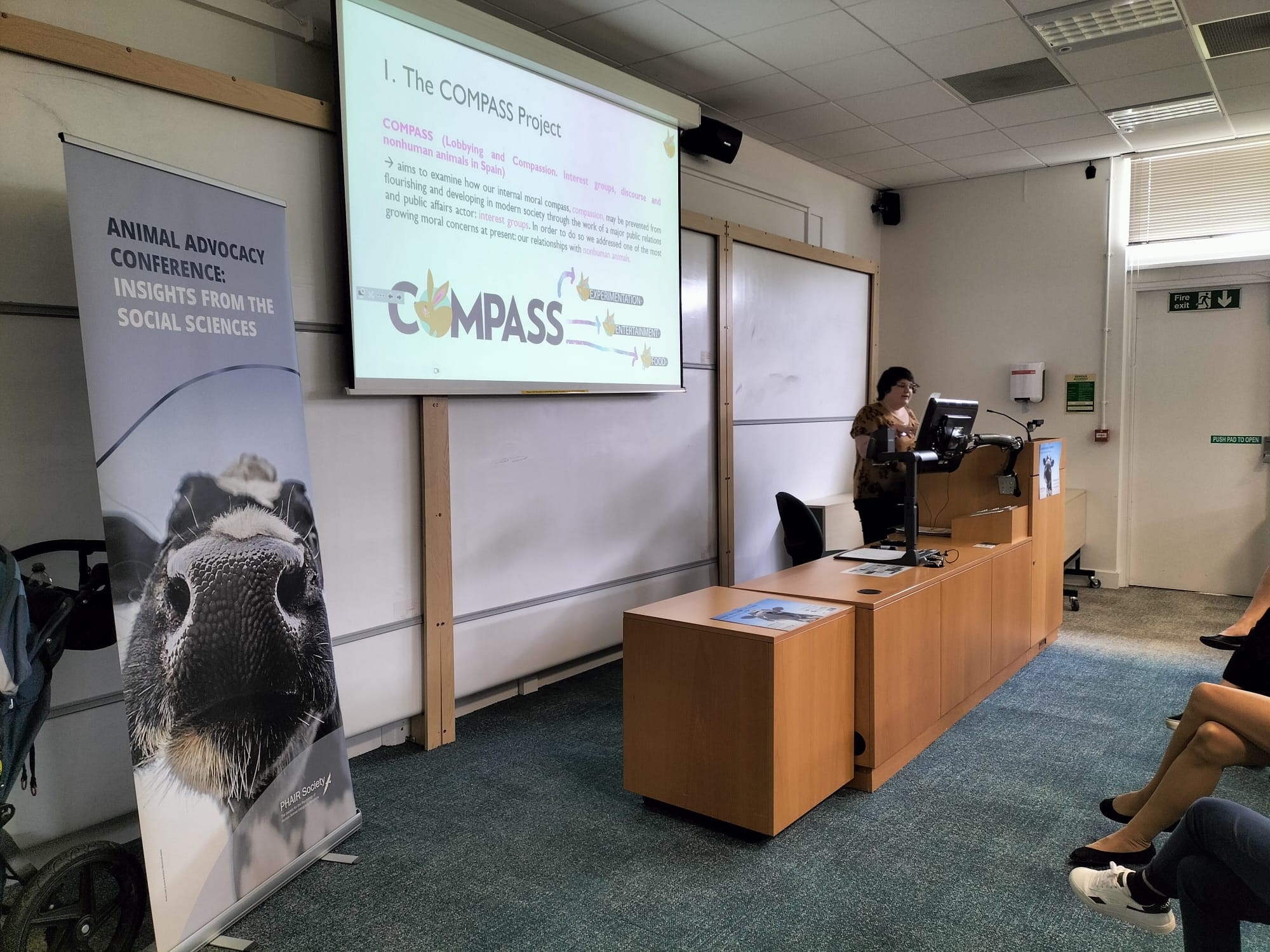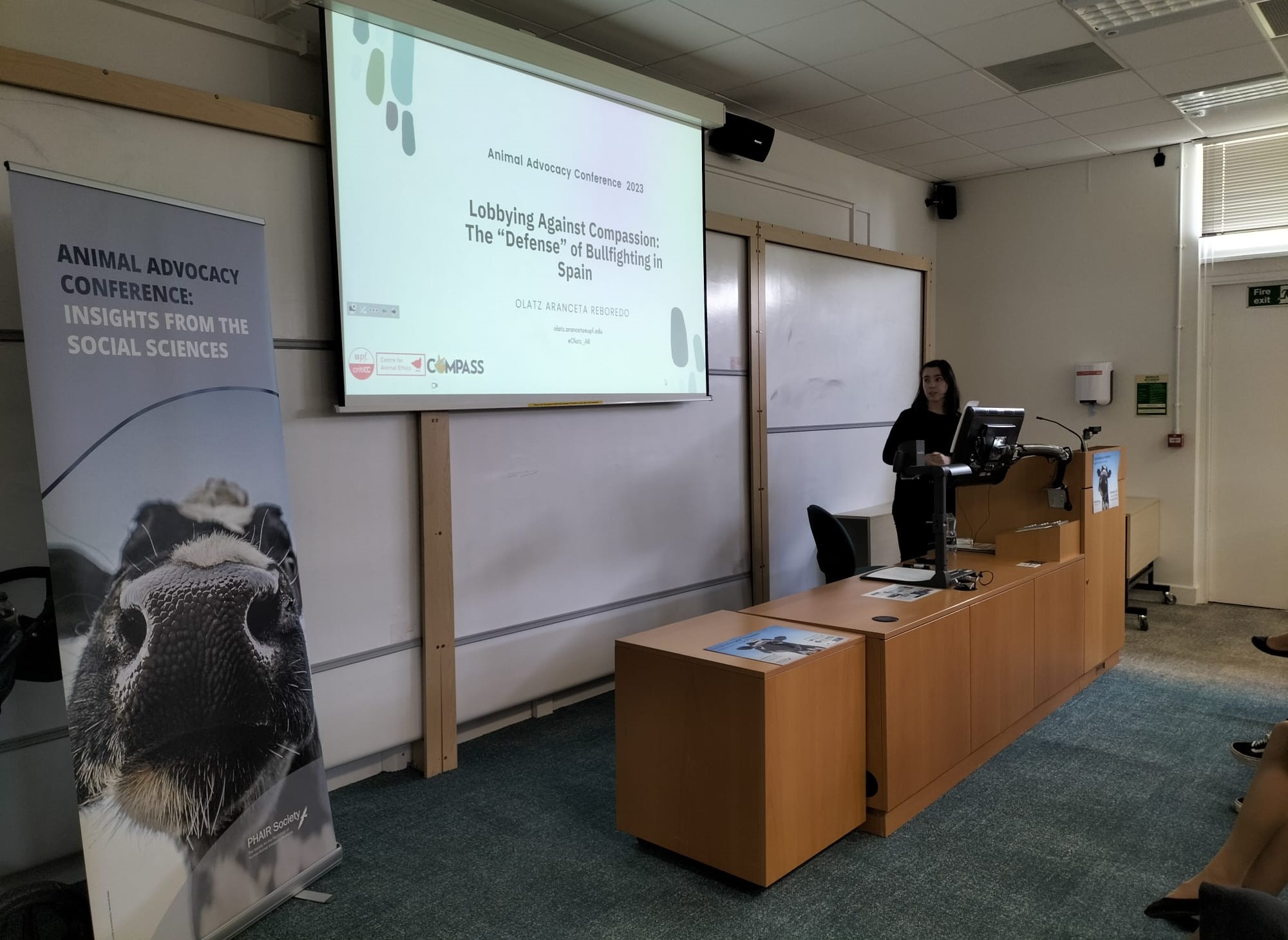Animal Advocacy Conference - COMPASS presentations June 2023
Laura Fernández and Olatz Aranceta Reboredo, members of the COMPASS research team, presented the results of the ongoing project at the Animal Advocacy Conference in Kent.

Laura Fernández presented “Mapping the Animal Industrial Complex Lobbying in Spain: Three Paradigmatic Coalitions”:
The animal industrial complex (AIC) has vast political, economic and social influence. We present the findings of a research on the AIC’s Spanish interest groups aiming to identify the main AIC lobbying stakeholders in three important sectors and explore whether various industries manage to work in coalition. We located the most influential stakeholders by means of a literature review, websites search, media coverage and expert consultations. To analyse their connections, we observed their sponsorships, public statements, and social media interactions. The result is a map of the most important AIC Spanish lobbies, which shows some degree of coordination in their discursive and communication strategies. Particularly, we found three paradigmatic coalitions: “rural alliance”, “zootechnics” and “conservation research”. The results advance our understanding of how these powerful agents unite to boost discourses based on their economic interests, limiting compassion towards other animals
Olatz Aranceta Reboredo presented “Lobbying Against Compassion: The “Defense” of Bullfighting in Spain” :
This paper presents the results from a study on Spanish bullfighting interest groups and their discourse with the goal of (i) examining the discourse of the main stakeholders and identifying their main arguments; and (ii) examining how it connects to three drivers of animal exploitation (capitalism, speciesism and androcentrism). Critical discourse analysis was conducted on the data from the interest groups’ web-pages and done within the ethical framework of critical public relations and critical animal studies. The results show that these lobbies employ a practice of public relations that justifies the exploitation of nonhuman animals. Moreover, they use instrumental empathy in their messages and justify the perpetuation of animal exploitation for economic profit, speciesist and androcentric cultural traditions, and environmental reasons. The findings help us better understand the discourse these interest groups spread; a discourse that, above all, serves their financial interests and blocks compassionate responses towards other animals.

